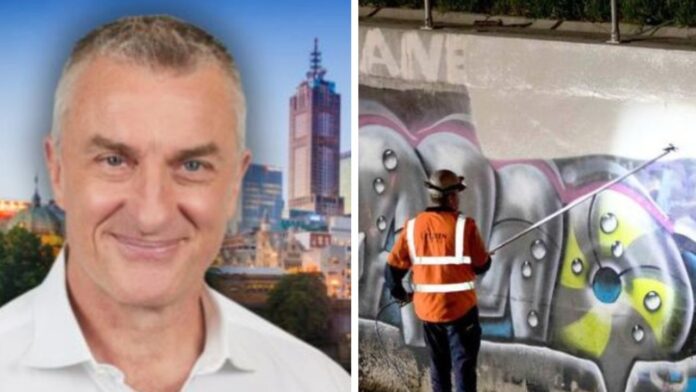Melbourne has long considered itself the darling of international rankings, regularly topping lists and beating perennial rival Sydney when it comes to arts and culture, education, and liveability.
However, the release of the Benchmarking Melbourne 2024 Report on Monday cast doubts on this reputation, with 3AW Melbourne radio host Tom Elliot going as far as to claim the city “has slipped”.
“They have concluded that Melbourne has some problems, that Melbourne is not as liveable, connected or as welcoming as it once was,” Elliot said.
“Our city has slipped, by our own standards and by our own rankings in comparison with other global cities.
“Melbourne is not as good a place to live as it used to be.”
The Committee for Melbourne’s report compared the metropolis against 20 “peer cities” including London, Berlin, San Francisco, Singapore and Sydney, and found Melbourne had fallen from second to seventh for inclusivity, wellbeing, connectivity, housing and business attraction.
The benchmarks measured Greater Melbourne and its 31 local councils both in terms of how the city is performing and how it is received. Titles such as ‘stretched beyond our limits?’ and ‘popular, but are we prepared?’ led the reports findings.
The 3AW host claimed the lowered liveability rank boiled down to four main issues that needed “fixing”.
Why the slide?
Off the bat, Elliot said Melbourne’s public transport system was a key issue holding the city back from higher liveability standards.
Although Melbourne topped rankings for its tram network, Elliot said the division of the Myki system into ‘zones’ was unnecessary.
“The idea that we have to have separate tickets that expire every couple of years and have to be manually recharged is archaic,” Elliot added.
He argued residents should be able to use their credit card or smartphone across public transport, similar to the Opal ‘tap on, tap off’ system in Sydney.
The 3AW host also took issue with another transport-related problem – bike lanes.
“It’s about time someone put their hand up and said, even though we are spending millions and millions and millions of dollars building bike lanes, they are not actually being used all that much,” he said.
“Just accept that people want to drive their cars – petrol, electric, whatever – and reconfigure the roads for them.”
Elliot told listeners crime and graffiti was another major issue and said residents don’t feel safe because of the actions of a “hard-core group of young offenders”.
“Lets round them up, lets not just put tracking bracelets on them, lets lock them up and stop the youth crime wave that is so afflicting Melbourne,” he said.
When it came to Melbourne’s signature graffiti city-style, Elliot said it was associated with crime and “sadly we see far to much”.
“We tolerate it, we accept it, we say ah well it’s just part of our culture, our fabric. But it doesn’t have to be, there are plenty of other cities around the world where you hardly see any graffiti at all.”
The radio host then cited the city’s rising population rate of 150-160,000 people per year and claimed Melbourne needed to get population growth “under control”.
“(Melbourne) is too big, its one of the biggest urban areas on earth. You can drive for 100km north, south, east, or west and you are still in the greater metropolitan area we call Melbourne,” he said.
Residents weigh in
After Elliot gave his reasons for why Melbourne had “slipped” in international rankings, locals called in to share their thoughts and echoed the host’s concerns.
A caller going by the name of Mark said crime was to blame for making Melbourne ‘less liveable’.
“First thing you do is no bail for all of these little juveniles,” said Mark.
“And the second concern I’ve got is that when you look at cities like San Francisco that have had long-term left-wing governments, I think that could be out future,” he added in relation to the US city’s crime rates and lax shoplifting laws.
A second caller pointed out that Android users can pay for public transport with their phone as Myki runs through Google Wallet – however iPhone users still miss out.
Committee for Melbourne CEO, Mark Melvin said that while the city retained its strengths in sports, arts, parks and as a highly sought-after tourism destination, it was not enough to remain competitive on the world stage.
“The report shows Melbourne has a lot to be proud of, with our culture, healthcare, services, air quality and public space remaining some of the best in the world,” Mr Melvin said. “However, what we are seeing in this year’s results is hungrier competition from our peer cities including London, Sydney, Tokyo and Singapore, as well as from cities acting as investment gateways across Asia and the Gulf.
“As other cities improve and adapt, we have fallen behind in areas including infrastructure and housing affordability (and) as Melbourne grows outwards, fewer Melburnians have access to public transport.”


